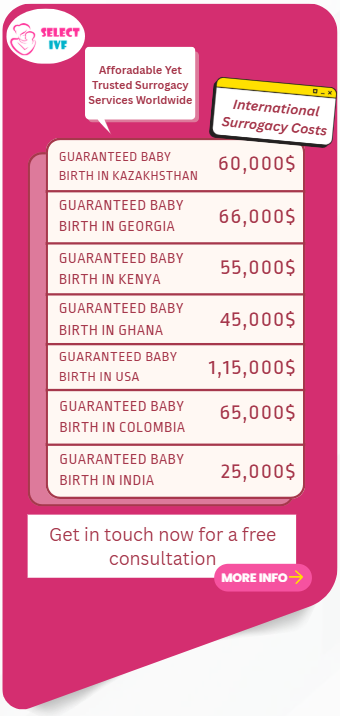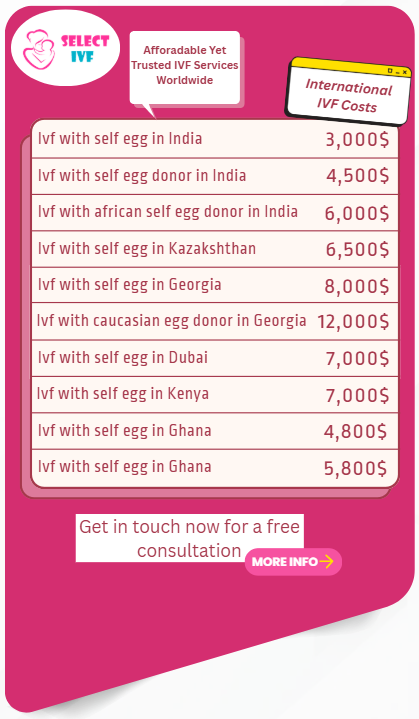Why are surrogate mothers considered essential in India’s surrogacy practice?
Surrogate mothers in India play a vital role in the surrogacy method, as they are giving the lifeline to many infertility couples in India. Surrogacy has been the most effective Assisted Reproductive method, with surrogate mothers giving birth to thousands of living children for globally affected infertility couples. The surrogate mother has contributed beyond carrying the child for another couple but carrying the child with a selfless act of intent for giving birth. After the fertility doctors, Surrogate Mother in India play the most important role in dealing with the emotional challenges associated with carrying a child for another couple. Their role is associated not only physically but also with dedication and resilience towards the whole surrogacy process.
This article will help you learn about and understand surrogate mothers in India. The articles help to highlight the various factors to think about before opting to be a surrogate in India.
Who do we call a Surrogate Mother in India?

A Surrogate Mother is a woman who carries a pregnancy and delivers a child for another couple. The surrogate mother provides full consent for the surrogacy procedure to carry the child with the intent of helping the childless couples achieve parenthood. Usually, the intended female partner faces certain kinds of medical conditions or infertility issues for which she can’t be able to carry the pregnancy in her womb. For such reasons, the intended couples will approach surrogate mothers to help them. Two kinds of surrogacy arrangements will tell the type of relationship, the surrogate mother will have with the born child. Here are:
- Traditional Surrogacy: In this type of surrogacy, the surrogate’s reproductive gametes i.e. eggs will be used for artificial insemination with the intended father’s sperm for fertilization. Due to the involvement of the surrogate’s eggs, the surrogate mother will be the biological mother of the child in this type of procedure. It is a very complicated kind of relationship in this type of surrogacy procedure.
- Gestational Surrogacy: In this type of surrogacy, the reproductive gametes i.e. eggs & sperm will be both used by the intended couples. Artificially insemination (IVF) is used to form an embryo and then implant it in the uterus of the surrogate mother. This kind of procedure has helped the intended couples to become the biological parents of the child, making it the most viable option in this context. The surrogate mother will no longer have biological relations with the child.
After the Surrogacy Regulation Act, 2021, or ART Bill, commercial surrogacy has been banned in the country, and surrogate mothers will no longer get compensated for their service of carrying the baby in her womb and delivering it to other couples.
However, according to the new laws, surrogate mothers will be compensated for all the medical bills, food & prenatal care during the pregnancy, insurance coverage (mandatory), travel & accommodations, etc. She will not be compensated for the service and she should have provided the written consent for the intent of helping the couple to have their child. The new laws have strict eligibility criteria for surrogate mothers in India, we will discuss this further in the article.
Factors to Think About If You Want to Be a Surrogate Mother
Becoming a surrogate mother in India can be challenging emotionally and psychologically, as this demands fit health requirements for pregnancy and delivery to carry a child for 9 months and deliver the child through normal or C-section delivery. Numerous factors need to be considered by you before becoming a surrogate mother, we will discuss these one by one:
- Physical Health & Medical Requirements
You should meet certain health & medical requirements. According to the new laws, they should be in good physical health with the status of married with having a child by successful pregnancy, without the history of miscarriages or failed pregnancy. You should be between 23-35 years old.
You should have to go through various medical examinations such as physical fitness tests, blood tests, fertility assessments, ultrasounds, and psychological evaluations. These examinations ensure the capability and compatibility of the surrogacy process.
- Emotional Readiness
You should be ready for the process not only physically as well as emotionally perspective. The pregnancy period builds the emotional bonding with the child as like your own child, despite the fact this is not your child. You should be mentally ready for it and make sure you have the right emotional support from your family for the surrogacy process.
- Legal Considerations
You should understand the legality of the procedure, fully informed about the legal agreements to be made with the intended couples. The agreement which outlines the roles & responsibilities, and the provision for the compensation for medical bills, Insurance coverage and the cost of prenatal care. This legal contract will make sure that the intended parents will have the parental rights for the child after the birth. You have to comply with these legal procedures.
- Financial Implications
You should understand that only altruistic surrogacy is allowed in India legally, you should aware about the compensation for the process. You will only get the reasonable compensation for all the medical bills, food & prenatal care during the pregnancy, insurance coverage (mandatory), travel & accommodations, etc. If you are working in a job, you should have to consider the change after the conceiving, you have to make little adjustments in your lifestyle and job life.
- Physical Changes Demands
As you have a successful pregnancy history, you are fully aware about the fact that the pregnancy comes with the certain physical changes with your body, your body will demand certain healthy diet, your body anatomy changes alot during and after the pregnancy period.
- Ethical and Moral Beliefs
You are well aware about our society & cultural beliefs and fully aware about the traditional societal judgements or opinions for such sensitive topics, you have to consider your cultural and moral beliefs before deciding the process.
- Relationship with Intended Parents
You should have to understand and make the professional yet personal relationship with the intended parents, how well you can interact during & after the surrogacy process.
- Support from a Surrogacy Agency or Clinic
You should work with licensed fertility clinics or agencies as well as good fertility specialists who practice the legal and ethical surrogacy process. You should go for a pre-surrogacy consultation well awared of the process and make an informed decision to be a
surrogate mother in India.
What are the Criteria for Becoming a Surrogate Mother in India?
The Surrogate Mother should meet certain eligibility criteria in order to be involved with the surrogacy process for another couple. Here, are the criteria you should meet:
- You should not have a history of being a surrogate mother.
- Your age should be between the age of 23-35 years old.
- You should be a married woman with a biological child.
- You should be physically and mentally fit and aware of the process before undergoing the surrogacy process.
- You should not have a history of failed pregnancies or miscarriages, or have a history of successful pregnancies.
- You should have to be the close relative of the intended couple and have the intent of helping instead of monetary purposes.
- You cannot donate your reproductive gametes i.e. eggs for the artificial insemination process.
- You should not have a lifestyle of smoking or alcohol consumption.
- You should not have any infectious diseases or sexually transmitted diseases for the process.
Step-by-Step Surrogacy Process: A Guide for Surrogate Mothers in India
Surrogacy is a series of complex procedures which is carefully followed by the intended couples and surrogates. The process involves the steps to support the surrogate mother to prepare medically, legally, and emotionally for the whole process. Here, is the process to be considered for becoming a surrogate in India:
- Application & Counselling
You have to apply to good registered fertility centers or clinics to take part in the surrogacy process, you will get full counseling on the process and about the legal agreements importantly. The fertility clinics will make sure you have the legal eligibility and fully understand the process. You should have to commit the process dedicately, by following the process until the end.
- Medical and Psychological Evaluation
You will undergo various examinations and tests, making sure you are free from any infectious diseases or sexually transmitted diseases. You will examined for the physical ability and psychological evaluations for the surrogacy process, in order to make sure you are the perfect fit for the surrogacy process.
- Legal Agreement
You should be aware of the legal contract or agreement to be signed before the actual start of the surrogacy process. The agreement includes the key responsibilities and roles you have with the medical insurance coverage, further adding the reasonable compensation provision to you after the delivery of the child.
- Implanting Preparation & Embryo Transfer
You will be prepared for the implanting process. You will be undergoing hormonal therapies for the uterus to hold an already pre-fertilized embryo, which will lead to pregnancy later. For embryo transfer, you will be undergoing a small surgical procedure, which is a completely painless and outpatient procedure.
- Pregnancy Care & Delivery
After 10-14 days, you will undergo the blood tests for pregnancy confirmations. Follow-up appointments are to be made to check the development of the baby for the whole pregnancy period with the help of ultrasounds. After the delivery of the child, you will have to legally sign the contract to waive off the parental rights to the intended couple so that they will become the legal guardian of the child.
- Postpartum Care & Counseling
The fertility clinics will provide the postpartum care for the recovery after delivering the child. Necessary medical care and counseling will be provided to address any emotional challenges or attachment issues you are facing after the surrogacy process.
What does the overall compensation for the surrogate mother in India Include?
Due to the altruistic type of surrogacy performed legally in India, the surrogate mother is reasonably compensated which includes medical bills, food & prenatal care during the pregnancy, insurance coverage (mandatory), travel & accommodations, etc. The overall compensation can vary based on different factors which may fluctuates such as the reputation of the fertility clinics, prenatal care, and medical insurance, etc.
The average compensation of surrogate mother in India ranges between ₹3,00,000 – ₹5,50,000. These costs will be covered by the intended couples. This overall compensation includes things:
- Medical expenses include cost of all medical examinations & tests, surgical procedures for embryo implantation, hormonal medications, etc.
- Medical Insurance coverage
- Prenatal care, food & travel expenses
- Postpartum care expenses
Will I Get Medical Insurance as a Surrogate Mother in India?
Yes, the overall compensation being paid to the surrogate mother includes the medical insurance. The legal agreement has the provision of providing the medical insurance to the surrogates by the intended couples. This provision has made compulsory according to the new Surrogacy Regulation Act, 2021 in order to keep the surrogacy process ethical and legal practice in India.
Why to Choose Select IVF to Begin Your Journey as a Surrogate Mother?
Select IVF has been a major player in the field of providing fertility treatment. Select IVF has the mission of empowering families to achieve successful parenthood, who are facing hopelessness with their infertility conditions with their professionalism utmost care, and effective treatments.
They have been working to provide the best assisted reproductive technology such as advanced infertility treatments such as Surrogacy, IVF, ICSI, IUI, Egg & Sperm Freezing, etc in more than 10 countries worldwide.
Here, are the considering factors for choosing Surrogacy:
- Providing effective treatment for both Male & Female infertility.
- Surrogacy, IVF, IUI, ICSI, egg & sperm freezing, egg donor, etc at reasonable costs.
- 24 hours for all 7 days service, caters to emergency services also.
- A huge team of infertility specialists specializes in major infertility conditions
- Patient-centric effective treatment with ethical practices.
You can read more on our website https://selectivf.com/ or consult on call +91-8447592299 or email your query to info@selectivf.com
Conclusion
In this article, we get to know about the legal requirements for becoming a surrogate mother in India, how they take part in the surrogacy process, and what are their roles. Being a surrogate is a quite challenging process, which demands immense courage, dedication, and resilience to help other couples to achieve their dream of parenthood.
When you consider becoming a surrogate, go through the different aspects and factors before actually opting for it, and carefully give thought about yourself and your family, if you think you can do it to help others, please go through the consultation with a good fertility center or specialists. Become a surrogate without compromising your interests and give a memorable parenthood experience for the couple.
FAQs for Surrogate Mother in India
1. Do Surrogate Mothers Get Paid if They Miscarry?
Yes, the compensation provision included in the legal agreement is mandated despite having complications or miscarriage mishappening during the pregnancy period.
2. Do Surrogate Mothers in India will Have to Live in Surrogate Home/Hostel?
Yes, the surrogates should have to live in the surrogate hostel or home during the whole surrogacy process. It is intended to provide better care to surrogates for the whole pregnancy tenure.
3. Do I Get Paid for My Service for Being a Surrogate?
No, this type of surrogacy practice, which is known as commercial surrogacy, which is legally banned in India. Only reasonable compensation will be paid to the surrogates in India.
Read Also:
- Prominent IVF Clinic Near Dwarka: Select IVF – Bringing Dreams to Life
- Ferticity Delhi: A Trusted Partner in Your Fertility Journey with Select IVF
- Indira IVF Borivali Cost: A Comprehensive Guide to IVF Treatment
- Nova Fertility Andheri West: A Leading Destination for Fertility Treatments with Select IVF
- Comprehensive Guide to Jilla IVF Andheri West: A Select IVF Center
- Gaudium IVF Best IVF Centre in Khar Mumbai: Leading the Way in Fertility Treatment
- Ankoor Fertility Clinic Mumbai: A Premier Destination for Fertility Treatment in Mumbai









